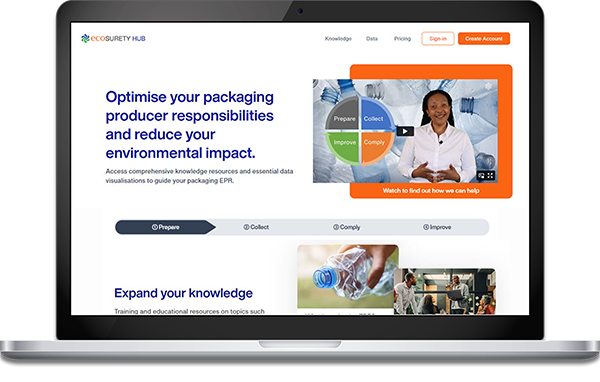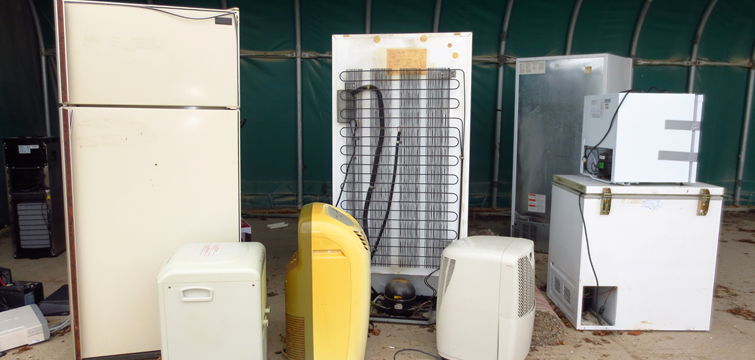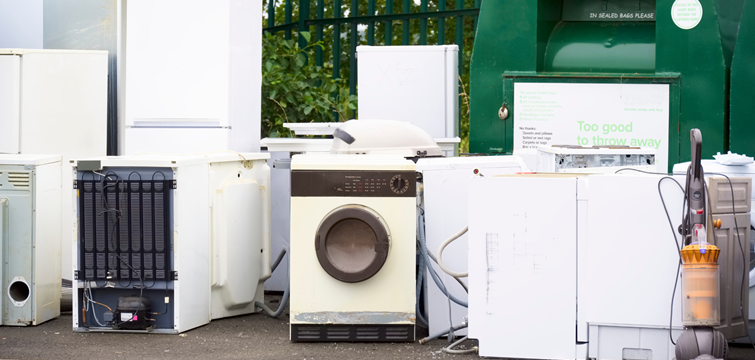The government response, published on the 21 October, re-names the measures as ‘simpler recycling’ and sets out plans to ensure a consistent set of materials are collected from households and businesses in England.
There have been two public consultations on these measures, the latest closed on 4 July 2021.
The key decisions outlined in the government response to the consultation are outlined below:
- Local authorities (LAs) in England will have to collect a consistent set of dry materials for recycling. These include steel and aluminium cans and aerosols, paper/card and cartons for food by 31 March 2026. This will extend to plastic film and flexible packaging a year later, by 31 March 2027. This also applies to non-household municipal premises such as schools and hospitals.
- LAs will be permitted to fulfil the above via co-mingled collections, meaning each household will likely be offered three waste containers (dry recycling, food waste and residual) and optional garden waste collections.
- Authorities must also arrange for food waste collections for organic recycling by 31 March 2026 unless long-term disposal contracts are in place and a longer transition period is needed. For households this will be on a weekly basis.
- The timelines for collections from non-domestic premises are different due to the more flexible nature of commercial or private waste collection arrangements. As such the dry recyclable materials will be collected from businesses, other than micro-firms with less than 10 full time employees, by 31 March 2025. Mirco-firms must comply with this by 31 March 2027.
Better and consistent recycling collections
Whereas the other three devolved nations have better rates, England’s recycling collections have plateaued at around 42% for several years. As such, post EU exit, provisions were included in the 2021 Environment Act for improved collection requirements.
Better and consistent recycling collections in England are also key for the operability of extended producer responsibility (EPR) for packaging. Whereas EPR seeks to improve the recyclability of packaging being placed on the market, ‘simpler recycling’ should ensure the materials are better collected and recycled appropriately, guaranteeing circularity.
For net additional costs arising from ‘the new statutory duties’, LAs will be reimbursed by government’s central ‘New Burdens’ funding in addition to the predicted £900m that will be distributed to authorities via producer payments under EPR.
Other decisions in the consultation response include that, through statutory guidance, government will encourage LAs to collect residual – or ‘black bin’- waste at least fortnightly to prevent issues that may arise from less frequent collections.
Government hope that the improved recycling collection system will support investment in UK reprocessing infrastructure, create jobs and increase resource security. You can read the full government response here.
'A clear horizon'
Ecosurety’s Innovation and Policy Director, Robbie Staniforth commented: "These proposals are very similar to what we had anticipated. Setting a clear horizon for what citizens can expect to be collected from their homes and places of work is a vital step towards greater participation and confidence in the recycling system.
The action on plastic, in particular, lays down the challenge for the EPR Scheme Administrator, local councils, waste management companies and end reprocessors. It is pleasing to see that plastic pots, tubs and trays will be collected from businesses by 2025 and households by 2026.
We are humbled that the Government has credited our Flexible Plastic Fund initiative for the work undertaken to pilot collection and recycling infrastructure in their announcement. We look forward to passing on our learnings to the EPR Scheme Administrator as soon as is practicably possible so that they can scale up the collection of plastic films and flexibles well in advance of the 2027 mandatory deadline."


Exclusive knowledge to guide your packaging EPR
You may also be interested in...

Q3 2023 WEEE data shows promising collection figures
By Sophie Clelland 11 Dec 2023
Ecosurety divests from WEEE and Batteries compliance
By Louise Shellard 06 Nov 2023
UK on track to meet annual WEEE collection targets
By Sophie Clelland 05 Sep 2023
Promising WEEE collection figures released for Q1 2023
By Sophie Clelland 13 Jun 2023
